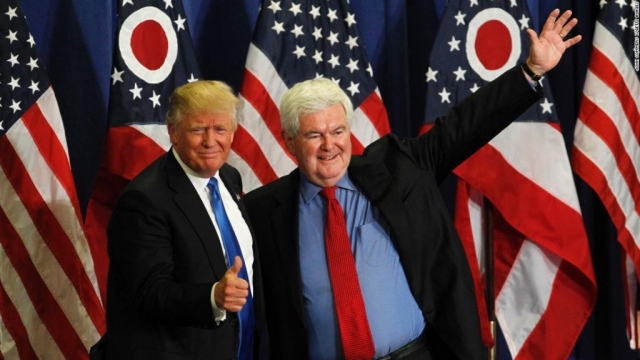What can HR learn from Trump's success?

As the world enters a new political era, and businesses reel at the US presidential result, Brexit and, of course, Harambe’s death, it’s worth taking a step back from the madness and asking what we can learn from these events as we head into 2017.
Donald Trump, President-elect was named as the TIME’s Person of the Year Award 2016 winner, and although his manner and politics may have divided the entire world, there's no denying that the year has been heavily influenced by his campaign.
In that light, HRgrapevine spoke to Atif Sheikh, CEO at Business 3.0, about what HR could learn from his success. He explains: “Looking at the success of Trump’s campaign, we see that when it comes to rallying supporters and driving engagement it was conversation, rather than communication that helped sway things. At present, communication is all about the art of persuasion, relying on expertise and polished arguments to get people on board with the 'right way ahead'.
“What has become apparent from Trump’s campaign is that the combination of the free-flowing dialogue of social media and general mistrust in institutions means people will no longer be persuaded or told what is right for them.
“Staff, like voters, must be brought on board with an idea, strategy or change from the start. They need to explore, debate, disagree and understand things for themselves. This ultimately allows them to come on board with deeper commitment. It’s vital to invest time and energy in creating conversations up down and all across an organisation.
“The Trump campaign also illustrated the power of people, who were perceived to be at the fringes of the electorate. In an organisation, it’s critical to identify employees who may have a different or difficult view, but who often hold a lot of sway. These people can share their views and be very influential. Not only can ignoring them be dangerous, but they may hold innovative answers that can help reinvent or improve a business.
“Taking a look at the inner workings of the two campaign teams, we saw that tactics won over strategy in the end. Clinton’s campaign polled everything, with a very deliberate strategy for all that was said or done. While this approach has traditionally worked in politics, the Trump campaign was more agile in responding and in turn was able to energise and mobilise. HR departments, like Clinton’s campaign are often rife with a culture of 'measuring engagement', where really the focus should be on 'instigating a movement'.
"It was well documented that Trump was difficult to work with, witnessed through several changes to his senior staff over the course of the campaign. Ultimately, however, Trump was Trump and he did not pretend to be anything else. In an organisation, also, it is a mistake to keep scripting and managing senior leaders to within an inch of their lives. Rather; they should be provided with guidewires and then unleashed. Of course this comes with risk, but the underlying lesson is that leaders need to be authentic.
“While the future is unclear for the business community, one positive lesson from the US presidential campaign for the HR profession is certain - the age of communication is over; the age of conversation is here.”






